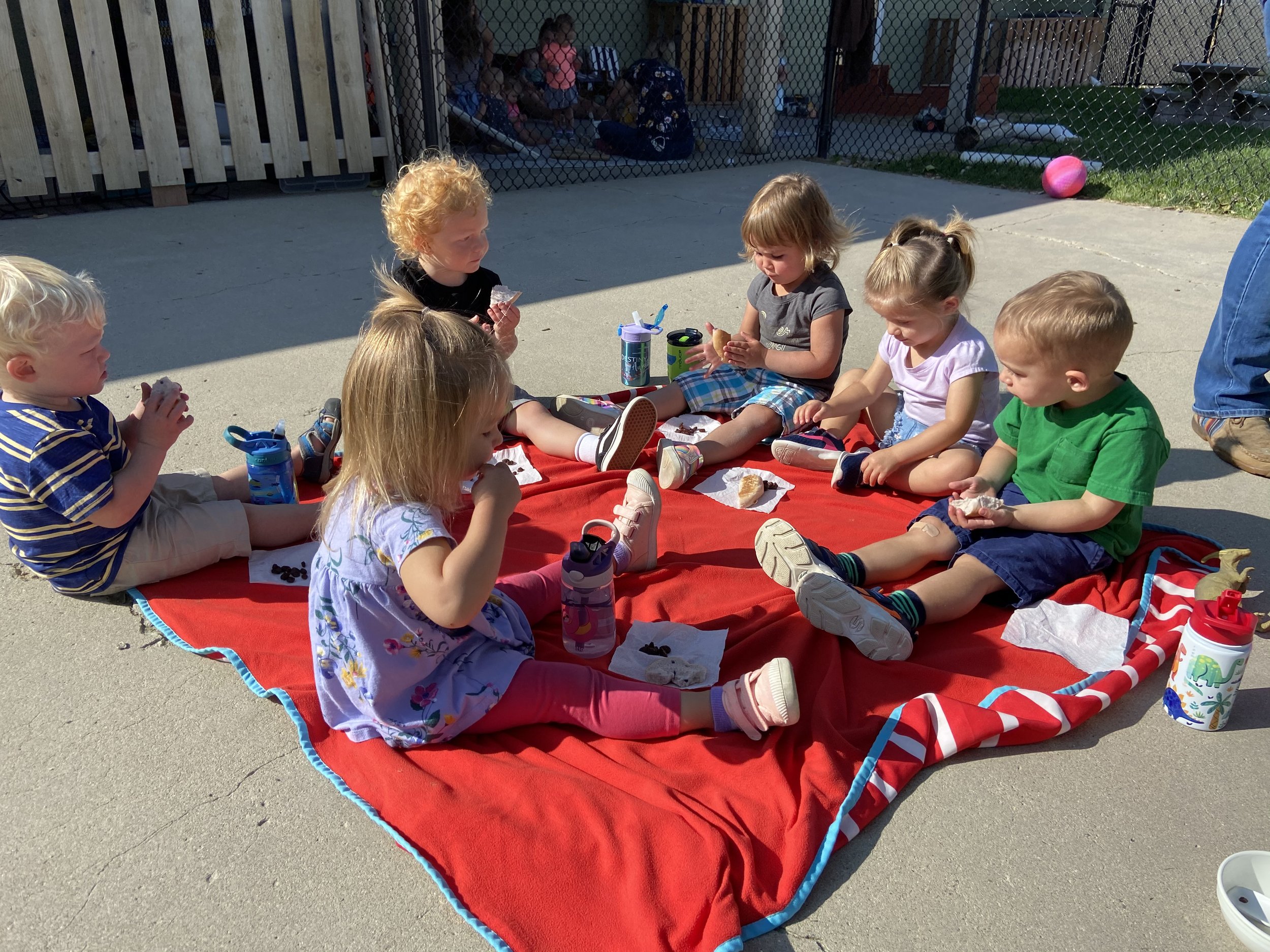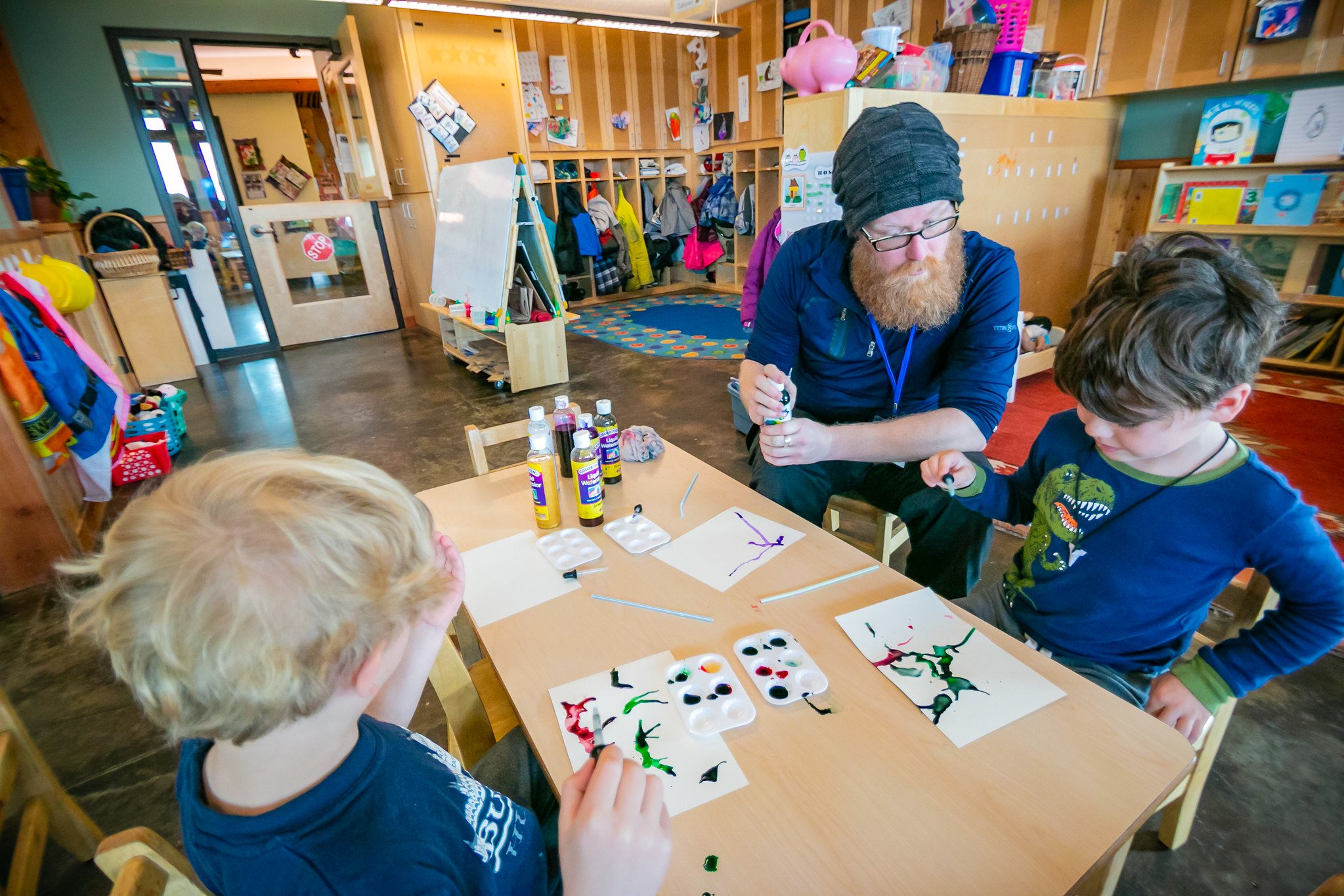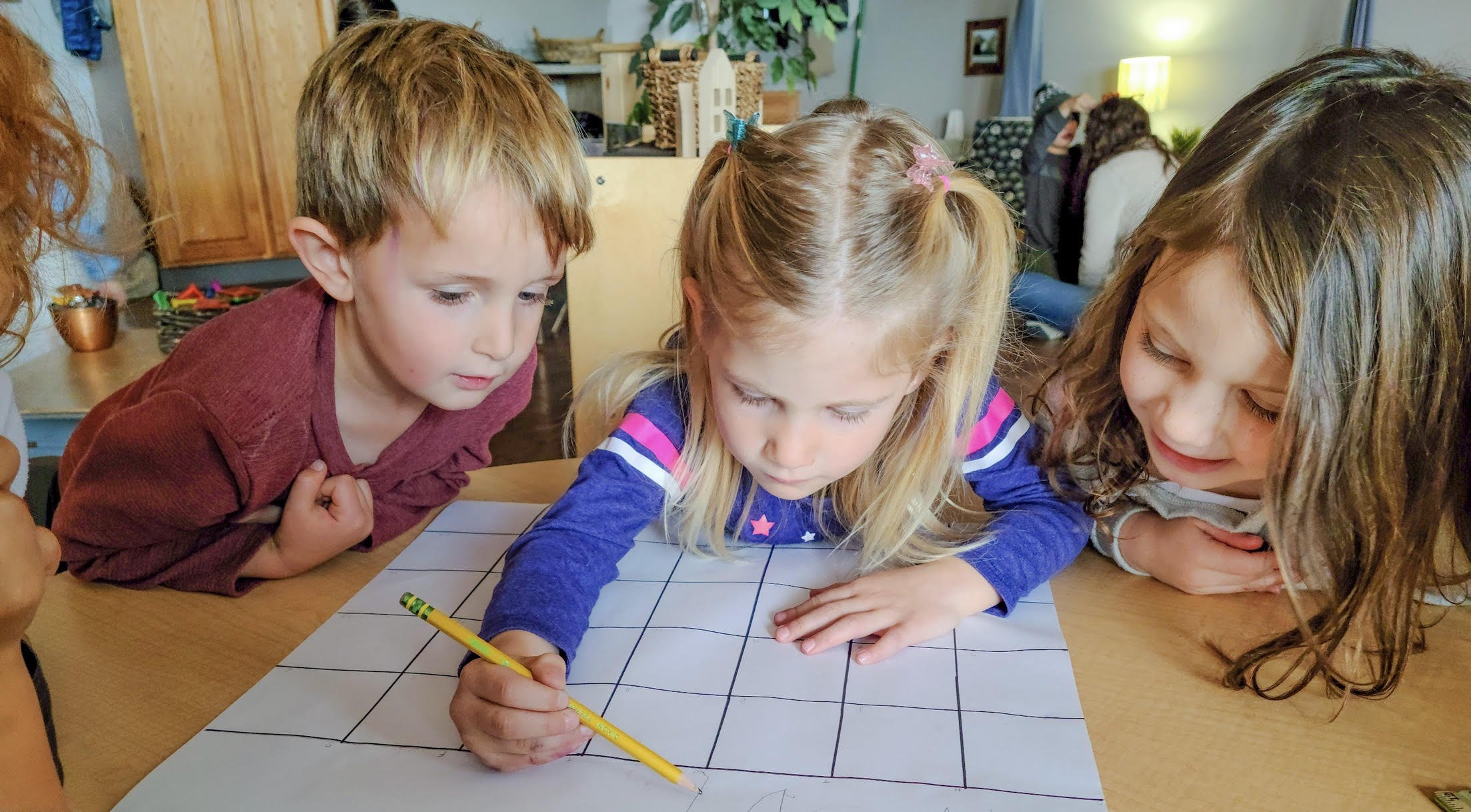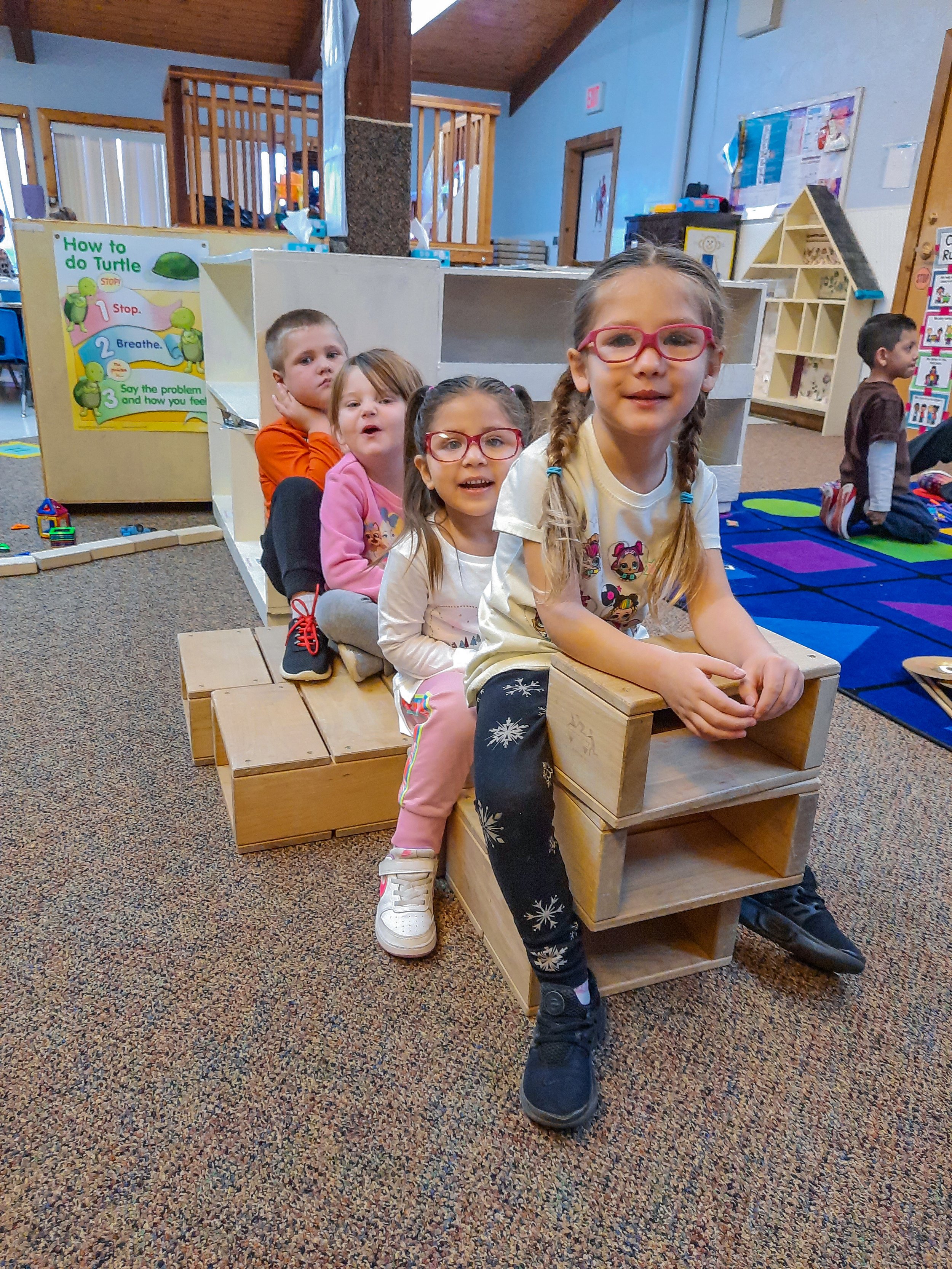
Explore by Topic
“What could happen if we gave adult growth and learning the same diligent attention as we give child growth and learning?”
(Margie Carter)
Browse resources on different early childhood topics below.
We encourage you to consider the needs of your setting, reflect on the children in your space, and identify your personal professional learning interests as you identify an area of learning you would like to focus on.
Click on a topic to learn more.
-

Language & Literacy Development
As they talk, play, read, and write with young children throughout the day, families, providers, and early childhood educators build a foundation for language and literacy. These important adults in each child’s world can instill a deep love for reading and learning as they share experiences with books each day. Language and literacy develop across domains as children grow and learn in a literacy-rich environment.
-

The Emotional & Physical Environment
The emotional and physical environment in early childhood settings provides the framework for young children’s learning. Intentionally designed learning environments that meet children’s emotional and developmental needs, represent their lives and experiences, capture their interest, captivate their minds, and encourage collaborative learning are a sign of a high-quality early childhood program.
-

Trauma & Young Children
Now, more than ever, there is a need for early childhood educators and leaders to help mitigate the negative effects of trauma on children. Together we must turn fears into positivity, work proactively to support children, families, ourselves, and each other. It is of great importance. For many children, trauma disrupts their development with the emotional, social, cognitive, linguistic, and physical progression, making it challenging to learn until the effects are addressed. It is critical that we, as early childhood educators, be able to support children and help children develop resilience and coping strategies.
-

Leadership & Program Administration
Early childhood leaders have a powerful influence on the experiences of teachers, families, and children every day. We know that when leaders continue to learn, the quality of the early childhood programs they lead thrive.
-

Developmentally Appropriate Practice
“The National Association for the Education of Young Children (NAEYC) defines “developmentally appropriate practice” as methods that promote each child’s optimal development and learning through a strengths-based, play-based approach to joyful, engaged learning.”
-

Family Engagement
Supportive partnerships with families are a hallmark of high-quality early childhood programs. Children thrive when the adult relationships surrounding them are healthy and strong. The following resources are designed to inform and inspire early childhood educators, providers, and leaders in their work with young children and families in Wyoming. Professional learning opportunities and additional resources are available on this topic by contacting the WYECPLC Learning Specialists.
-

Play
Daily learning experiences that are meaningful, exploratory, and actionable are essential to the grow and development of young children. Play finds itself in the middle of these high-quality learning experiences. Play organically fosters opportunities for young children to strengthen relationships and interactions, gain cognitive skills, and strengthen their physical health and development. The following resources are intended to support early childhood educators, providers, and leaders in their work with young children and families.
-

Equity
Equity, Anti-Bias Education, and Diversity all play an essential role in Early Childhood Education. These topics focus on genuinely knowing each individual child, family, and colleague we work with. These topics focus on providing high-quality educational experiences and working environments by honoring individual needs, backgrounds, experiences, abilities, cultures, and languages. According to the National Association for the Education of Young Children (NAEYC), “Our goal is to nurture a more diverse and inclusive generation of young children who thrive through their experiences of equitable learning opportunities in early learning programs.” (NAEYC, 2019, p.4)
